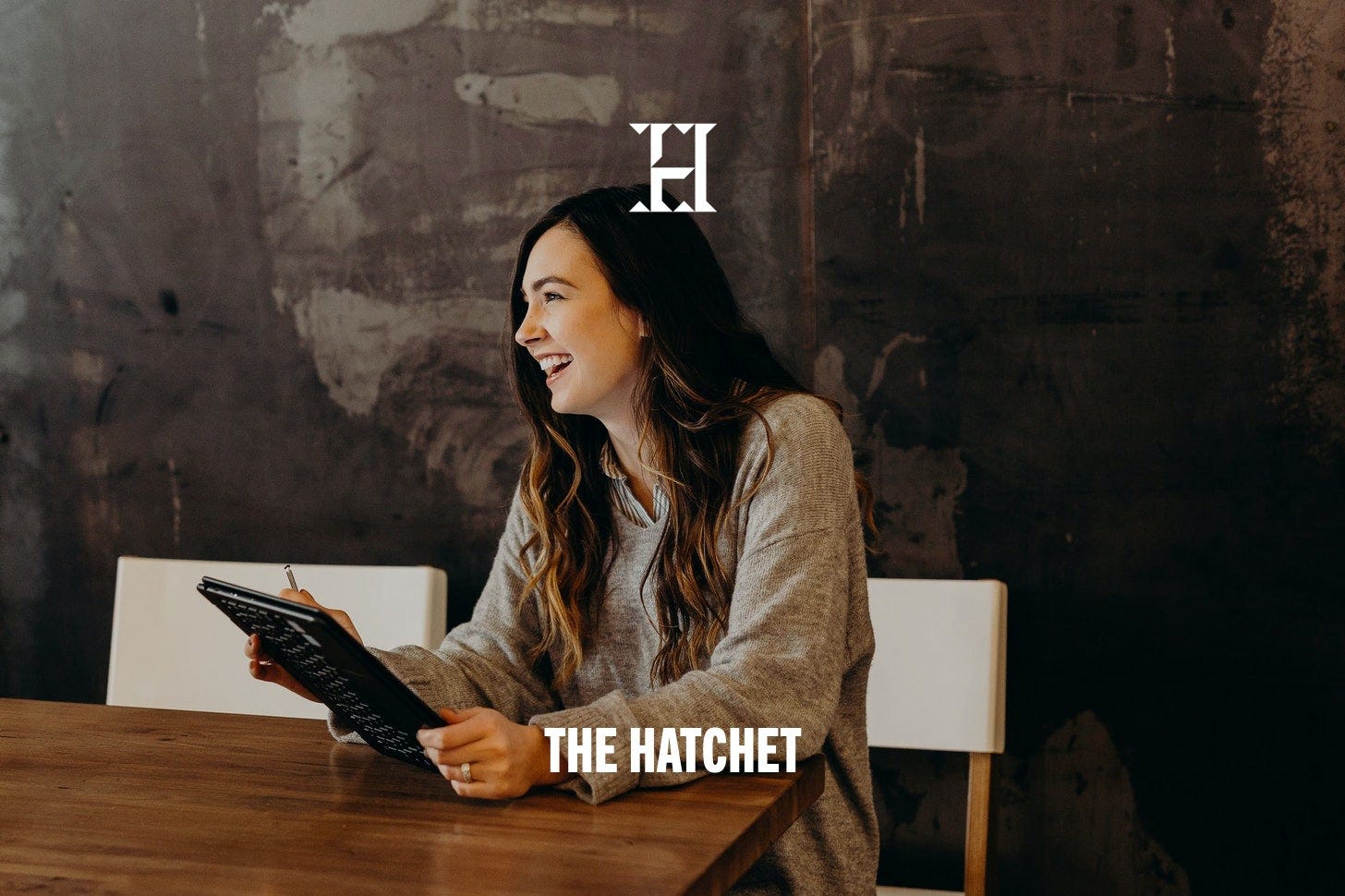#2 - Make an impression at your next job interview
Recruiters hate him.
Welcome to a new edition of the Hatchet. We share career advice for new managers working at fast-growing companies, directly to your email inbox.
Interested in receiving these stories too? Sign up here.
Make an impression at your next job interview
In 2016 my wife and I were preparing for a job interview she was about to have with her current employer. As one does, we thought about how she could best describe her skillset, discussed common questions she might get asked and covered key talking points she should look to bring across in the 60-minute interview.
The challenge is a recognisable one. You want to make a great impression, but every interviewer is different and you won't know which questions come up until they do. The fact that you're unable to fully control the course of the conversation worries you up front: will you be able to show the best version of you and what you have to say?
I told her to walk in to the room, engage in some small talk and then before anyone else could, initiate the interview with these words:
“I can imagine you have a lot of questions prepared for me, but why don’t I start off by telling you a little bit about myself first and then we can take it from there. How does that sound?”
Taking the lead
How does that sound? It sounds great is what it does and I'll tell you why.
Most people are busy making decisions all day long and there is nothing more pleasant than hearing somebody suggest that they can sit back and relax because 'this first part is covered'.
It exudes confidence. The kind of confidence that your potential employer will start to realise you could be using on their behalf in the future, should they choose to work with you.
You're in control of the conversation and just created an opportunity for yourself to start off with your story.
It's that third point that can really offer value.
Instead of being at the mercy of whatever opening dialogue or question your meeting partner puts forward, you can start off on your own terms.
In the case of my wife's interview that meant we had the opportunity to control the narrative on a few fronts:
when talking about her past experience we wanted to highlight the previous jobs more relevant to the new position and neglect those that weren't.
we decided to go into two defining career highlights to illustrate how it helped her grow the skillset and character traits we knew were relevant for the job.
it allowed us to design a subtle narrative that made the position she was applying for the only logical next step in her career.
We were careful to make sure the story could be delivered within 5-10 minutes, which seemed a reasonable amount of time to ‘hijack’ for an introduction in a 60-minute interview. We wanted the time she took to be aligned with the length of the interview to avoid having her be cut short half-way.
The advantage of taking the lead and sharing her story first was the opportunity you have to practice that opening narrative at home. In our case we practised delivering the narrative in turns so she had the opportunity to experience the effect from both sides. Of course, if you're doing multiple rounds of interviews you'll also find yourself becoming more confident in your delivery the more often you've done it.
Closing it off
Assuming you've already taken time to fire some relevant questions back at the interviewer, most job interviews end on a version of this conversational exchange:
Interviewer: I think I've asked about everything I wanted to know from you. Do you have any other questions for me/us?
You: Same here, no more questions, thank you.
This feels like a wasted opportunity not to execute a similar strategy for owning the closing narrative of your conversation together.
In the art of debate it's common practice to deliver closing arguments, and I feel there's a subtle way you can do the same in a situation like this.
My recommendation is to close off the conversation with a 30-second summary of why you're the right man or woman for the job. You can practice the majority of this part at home, although there's definitely bonus points if you manage to reference anything the interviewer mentioned during the conversation.
Interviewer: I think I've asked about everything I wanted to know from you. Do you have any other questions for me/us?
You: No more questions, but I'd like to summarise why I think you should hire me for this position. From our conversation it's become clear to me that you're looking for someone that has experience doing X, Y and Z, and can bring that expertise to the current team. Between my years at Company A and Company B I have X years under my belt of managing exactly these processes. Our conversation has also reinforced my belief that this is exactly the kind of company I want to work for.
You: Thank you again for this interview and feel free to reach out to me if you need additional information to come to a decision.
You'll never know how an interview will run and what challenging questions you'll get, but by taking the lead you'll always be able to start and finish it on your own terms.


